Contents
- Formal Ways to Say Goodbye in Korean
- 안녕히 가세요 (Annyeonghi gaseyo) — Goodbye (when you’re staying)
- 안녕히 계세요 (Annyeonghi gyeseyo) — Goodbye (when you’re leaving)
- 안녕히 계십시오 (Annyeonghi gyesipsio) — Goodbye
- 잘 가십시오 (Jal gasipsio) — Farewell
- 내일 봐요 (Naeil bwayo) — See you tomorrow
- 잘 가세요 (Jal gaseyo) — Take care
- 잘 지내세요 (Jal gyeseyo) — Stay well
- 잘 가요 (Jal gayo) — Go well
- 나 먼저 가요 (Na meonjeo gayo) — I’ll go first
- 이만 가겠습니다 (Iman gagessumnida) — I’ll be leaving now
- 다음에 뵙겠습니다 (Daeume boepgesseumnida) — See you next time
- 좋은 하루 되세요 (Joh-eun haru doeseyo) — Have a good day
- 건강하게 지내세요 (Geonganghage jinaeseyo) — Stay healthy
- 무사히 돌아오세요 (Musahi doraojoseyo) — Return safely
- 잘 들어가세요 (Jal deureogaseyo) — Enter well
- 조심히 가세요 (Josimhi gaseyo) — Get home safe
- Informal Ways to Say Goodbye in Korean
- 잘 있어 (Jai iss-eo) — Bye (when you’re the one leaving)
- 잘 가 (Jal ga) — Bye (when you’re the one staying)
- 안녕 (Annyeong) — Bye
- 안녕히 (Annyonghi) — Goodbye
- 안뇽이 (Annyongi) — Bye
- 안뇽 (Annyong) — Bye
- 나 먼저 갈게 (na meonjeo galge) — I’ll go first
- 잘 살아 (Jal sara) — Bye
- 바이 (Bai) — Bye
- 빠이 (Bbai) — Bye
- 빠이빠이 (Bbaibbai) — Bye-bye
- 다음에 봐 (Daeume bwa) — See you next time
- 나갈게 (Nagalge) — I’m outta here
- 이따가 또 보자 (Ittaga tto boja) — See you again today
- 내일 봐 (Nae-il bwa) —See you tomorrow
- 그럼 가 볼게 (Geureom ga bolge) — Well, I’ll be going then
- 가야겠어 (Gayagess-eo) — I have to go
- 갈게 (Galge) — I’ll be going
- 다음에 보자 (Daeume boja) — Let’s meet next time
- 나중에 (Najung-e) — Later
- 오늘은 여기까지 (Oneul-eun yeogikkaji) — That’s it for today
- 가지 마 (Gaji ma) — Don’t go
- 잘 들어가 (jal deureoga) —Enter well
- 조심히 가 (Josimhi ga) — Go carefully
- Korean Farewell Expressions for Specific Situations
- 안녕히 주무세요 (Annyeonghi jumuseyo) — Good night
- 안녕히 주무십시오 (Annyeonghi jumusipsio) — Sleep well
- 맛있게 드세요 (Masitge deuseyo) — Enjoy your meal
- 조심히 가십시오 (Josimhi gasipsio) — Take care on your way
- 안녕히 다녀오세요 (Annyeonghi danyeoseyo) — Have a safe trip
- 안전하게 돌아가세요 (Anjeonhage doragaseyo) — Have a safe trip back
- 좋은 여행 되세요 (Joh-eun yeohaeng doeseyo) — Have a great trip
- 잘 갔다 와 (Jal gatda wa) — Go well
- 좋은 시간 보내세요 (Joh-eun sigan bonaeseyo) — Have a good time
- 행운을 빌어요 (Haengun-eul biloeyo) — I wish you luck
- Goodbyes in Korean Culture
- And One More Thing...
50 Ways to Say “Goodbye” in Korean [with Audio]
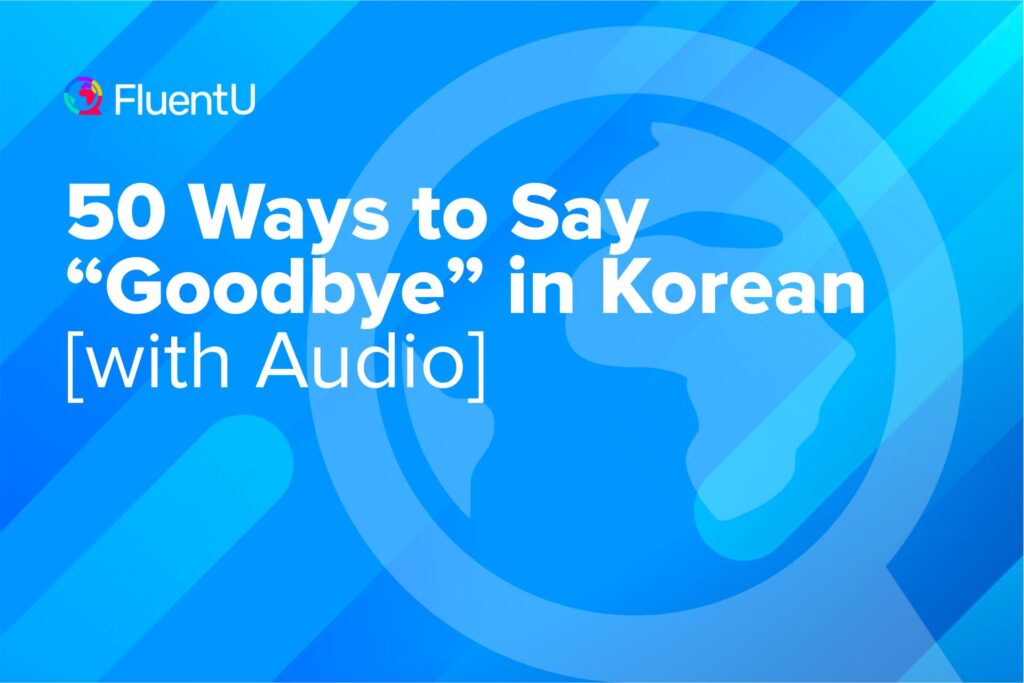
Saying goodbye in Korean is a little more than just giving a wave and a quick “bye.”
You have to consider who you’re talking to, who’s leaving, who’s staying and more.
Understanding the nuances of farewells in Korean is crucial for effective communication. Plus there are a lot of fun ways to do it that will make you sound more fluent.
In this post, we’ve going to give you 50 fun and easy ways to say farewell in Korean, including formal farewells, informal farewells and some great Korean goodbye expressions for special occasions.
Read on to level up your Korean language skills and add a touch of flair and creativity to saying goodbye in Korean.
Download: This blog post is available as a convenient and portable PDF that you can take anywhere. Click here to get a copy. (Download)
Formal Ways to Say Goodbye in Korean
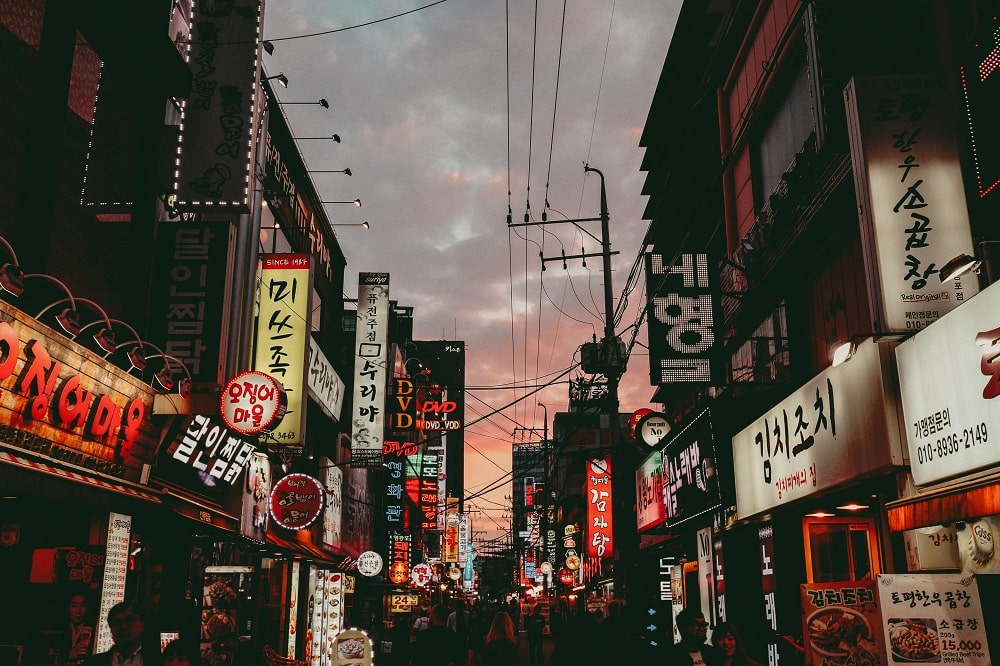
안녕히 가세요 (Annyeonghi gaseyo) — Goodbye (when you’re staying)
This phrase is used when bidding farewell to someone who’s leaving. Use it to say goodbye to someone who’s going home, traveling or departing from a gathering or event.
This is basically the same goodbye except that it’s what you’d use when the other party is leaving and you’re staying.
You’ll notice that the only part that’s different here is that you say 가 (ga) rather than 계 (gye). It’s the difference between telling the other party to “go” or “stay.”
This funny video from E-channel, in which a student tricks his mother into buying him nice clothes, shows both versions in the same exchange.
At 1:00 in this video, the salesperson says “안녕히 가세요” to the mother and son as they’re leaving the store, and they both reply with “안녕히 계세요” as they leave.
안녕히 계세요 (Annyeonghi gyeseyo) — Goodbye (when you’re leaving)
This one’s for the opposite. This is a standard polite goodbye you can say to someone or to a group of people when you’re leaving.
You might recognize the 안녕히 part from the greeting “안녕하세요.”
In this case, rather than asking if someone is at peace, you’re saying “Stay in peace.”
안녕히 계십시오 (Annyeonghi gyesipsio) — Goodbye
This Korean goodbye is appropriate for formal situations and when addressing individuals with higher status or seniority.
It literally means “stay well.”
This is even more formal than the previous goodbyes, so you’ll likely hear it only on TV, radio or when leaving a shop.
You can see this phrase at the end of this vintage news clip.
잘 가십시오 (Jal gasipsio) — Farewell
This is another formal and polite way of bidding farewell in a respectful manner, often used in formal or official contexts.
내일 봐요 (Naeil bwayo) — See you tomorrow
This is the formal way of saying “See you tomorrow.”
You can hear this phrase at 0:52 in this KBS clip from the drama “Please, Summer.”
잘 가세요 (Jal gaseyo) — Take care
This phrase expresses your wishes for someone’s well-being or safe journey when they’re leaving.
잘 지내세요 (Jal gyeseyo) — Stay well
If you’re the one who’s leaving while someone else is staying behind, use this phrase.
잘 가요 (Jal gayo) — Go well
An alternative to “Stay well” is “Go well.” You can only use it when the other person is leaving.
잘 means “well” in Korean, and 가요 means “go.”
나 먼저 가요 (Na meonjeo gayo) — I’ll go first
If you’re the one leaving a meeting or more formal occasion, you can also use this phrase, which literally means “I’ll go first.”
이만 가겠습니다 (Iman gagessumnida) — I’ll be leaving now
This phrase is a formal way to inform others that you’re leaving.
다음에 뵙겠습니다 (Daeume boepgesseumnida) — See you next time
Use this phrase to say goodbye formally while indicating the expectation of meeting the person again in the future.
좋은 하루 되세요 (Joh-eun haru doeseyo) — Have a good day
Use this phrase when parting ways with someone and wishing them to have a good day ahead.
건강하게 지내세요 (Geonganghage jinaeseyo) — Stay healthy
This phrase is used to bid farewell and express the wish for someone to stay healthy and well.
무사히 돌아오세요 (Musahi doraojoseyo) — Return safely
Use this phrase when bidding farewell to someone who is going on a trip or journey, expressing your wish for their safe return.
잘 들어가세요 (Jal deureogaseyo) — Enter well
This expression, meaning “enter well,” may sound a bit strange as a farewell, but it means that you wish them well for the next place they go, sort of like wishing someone a safe journey home or to wherever else they may be going.
조심히 가세요 (Josimhi gaseyo) — Get home safe
Want to tell someone to “get home safe” in Korean? Use this caring phrase.
Informal Ways to Say Goodbye in Korean
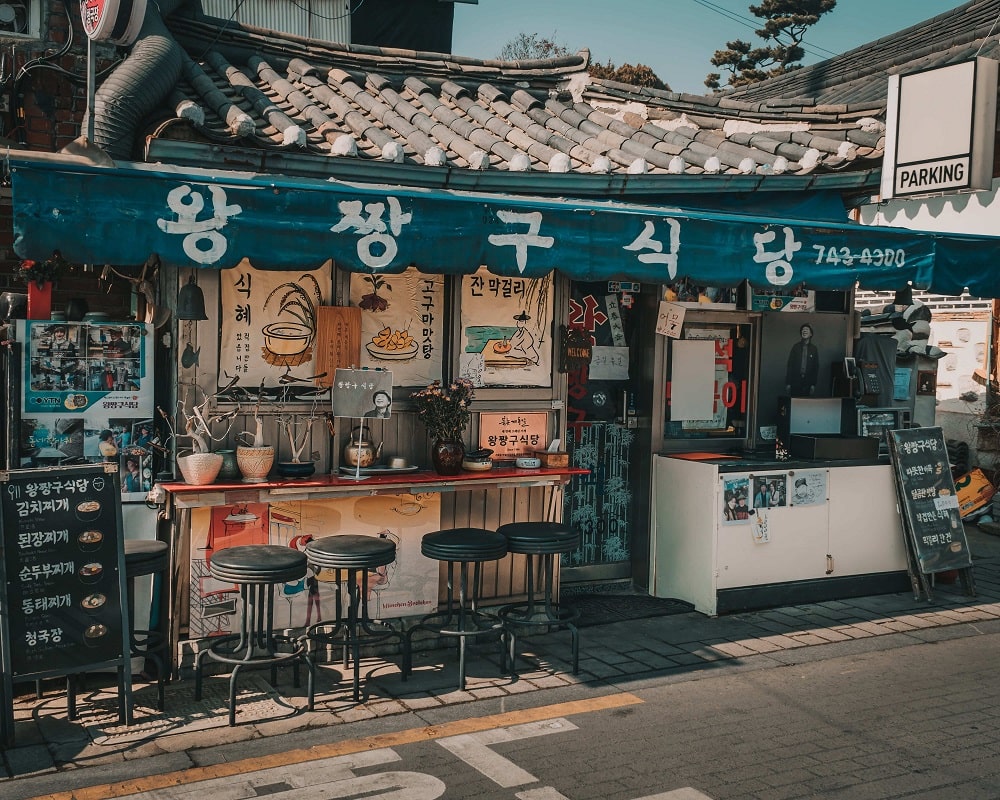
잘 있어 (Jai iss-eo) — Bye (when you’re the one leaving)
This is a more casual way to say goodbye when you’re the one leaving.
Here we have our old friend 잘 again. In using this expression, you’re telling someone to “be well,” or less literally, to “take care.”
This phrase appears in the Kim Han-bin song of the same name.
잘 가 (Jal ga) — Bye (when you’re the one staying)
You use this as a casual goodbye when you’re the one staying.
By now, you can probably work this one out on your own. Since 잘 is “well,” and 가 is “go,” “잘 가” literally means “go well.”
For example, if your friend is going home, or if, as is the case in this silly Korean smartphone commercial at 0:40, your poor broken phone is departing for the afterlife without you.
안녕 (Annyeong) — Bye
This is another casual and commonly used way of saying goodbye. It can be used in various informal situations with friends, family or close acquaintances.
안녕히 (Annyonghi) — Goodbye
This is another casual and commonly used way of saying goodbye.
안뇽이 (Annyongi) — Bye
This is another informal and playful way of saying bye, which is derived from “안뇽” (Annyong). It’s commonly used among friends, especially younger individuals or in a more relaxed atmosphere.
안뇽 (Annyong) — Bye
This is an informal and abbreviated version of “안녕” (Annyeong).
나 먼저 갈게 (na meonjeo galge) — I’ll go first
A common expression for saying goodbye in Korean is “I’ll go first.” If you’re the one leaving, you can use this expression.
It’s usually used only with close friends and you’ll hear it often in K-dramas.
잘 살아 (Jal sara) — Bye
This is a slang expression used to say bye. It’s more commonly used among younger individuals or in informal settings.
바이 (Bai) — Bye
This phrase is borrowed from English and is used casually as a way to say goodbye.
빠이 (Bbai) — Bye
This is a variation on the borrowed English “bye.”
빠이빠이 (Bbaibbai) — Bye-bye
This one’s just as cute as in English!
다음에 봐 (Daeume bwa) — See you next time
Use this phrase to express that you’ll see the person again in the future, in a casual way, like “See you later,” or “See you next time.”
Back to our friend Daryl. Daryl uses it a couple of times, including at 2:40, when he ends a conversation with a girl he met at a party who incorrectly remembers him as being dressed up as a zebra (when he was actually dressed up as Batman).
나갈게 (Nagalge) — I’m outta here
Use this phrase to inform your friends that you’re leaving.
이따가 또 보자 (Ittaga tto boja) — See you again today
If you have plans to see your friends again that day, you can use this phrase.
내일 봐 (Nae-il bwa) —See you tomorrow
This is a similar casual goodbye that means “see you tomorrow.”
Daryl Lim’s film doesn’t include this goodbye exactly, but our main guy’s friend uses a variation, ending their text exchange around 1:35 with “내일 보자,” which means something like, “Let’s see each other tomorrow.”
그럼 가 볼게 (Geureom ga bolge) — Well, I’ll be going then
This phrase is used to indicate that you are leaving.
가야겠어 (Gayagess-eo) — I have to go
Got to go? Use this casual phrase.
갈게 (Galge) — I’ll be going
This is another way to inform your friends that you’re heading out.
다음에 보자 (Daeume boja) — Let’s meet next time
Use this phrase to express the desire to meet the person again in the future.
나중에 (Najung-e) — Later
This phrase is used to say goodbye with the intention of meeting or seeing the person again at a later time.
오늘은 여기까지 (Oneul-eun yeogikkaji) — That’s it for today
Use this phrase when parting ways after completing activities or meetings for the day.
가지 마 (Gaji ma) — Don’t go
This phrase is used playfully or jokingly to express the desire for someone to stay or not leave. It’s commonly used among friends or in casual settings.
잘 들어가 (jal deureoga) —Enter well
This expression means “enter well” in Korean and you use it to wish someone a good or safe journey back home, back to work or back to most anywhere they’re going after you see them.
조심히 가 (Josimhi ga) — Go carefully
This phrase literally means “carefully,” but the expression is used to mean “get home safely” or “go carefully.” You use this one with friends or close family members of your generation.
Korean Farewell Expressions for Specific Situations

안녕히 주무세요 (Annyeonghi jumuseyo) — Good night
This is a polite phrase to bid someone good night in Korean before they go to sleep.
안녕히 주무십시오 (Annyeonghi jumusipsio) — Sleep well
This phrase is a more formal way of saying “Sleep well.”
맛있게 드세요 (Masitge deuseyo) — Enjoy your meal
If someone’s about to chow down as you walk away, you can say goodbye with this phrase.
조심히 가십시오 (Josimhi gasipsio) — Take care on your way
Use this phrase to bid someone farewell when they’re about to leave on a trip.
안녕히 다녀오세요 (Annyeonghi danyeoseyo) — Have a safe trip
This phrase is a more formal way of saying “Have a safe trip.”
안전하게 돌아가세요 (Anjeonhage doragaseyo) — Have a safe trip back
This is another polite way to say goodbye to someone leaving on a trip.
좋은 여행 되세요 (Joh-eun yeohaeng doeseyo) — Have a great trip
If it’s your friend who’s leaving, you can use this more casual goodbye.
잘 갔다 와 (Jal gatda wa) — Go well
This phrase is a casual way to wish someone a safe journey.
좋은 시간 보내세요 (Joh-eun sigan bonaeseyo) — Have a good time
Use this polite phrase to wish someone to have a good time or enjoy their experience.
행운을 빌어요 (Haengun-eul biloeyo) — I wish you luck
Use this casual phrase to express the wish for someone to have good fortune.
Goodbyes in Korean Culture
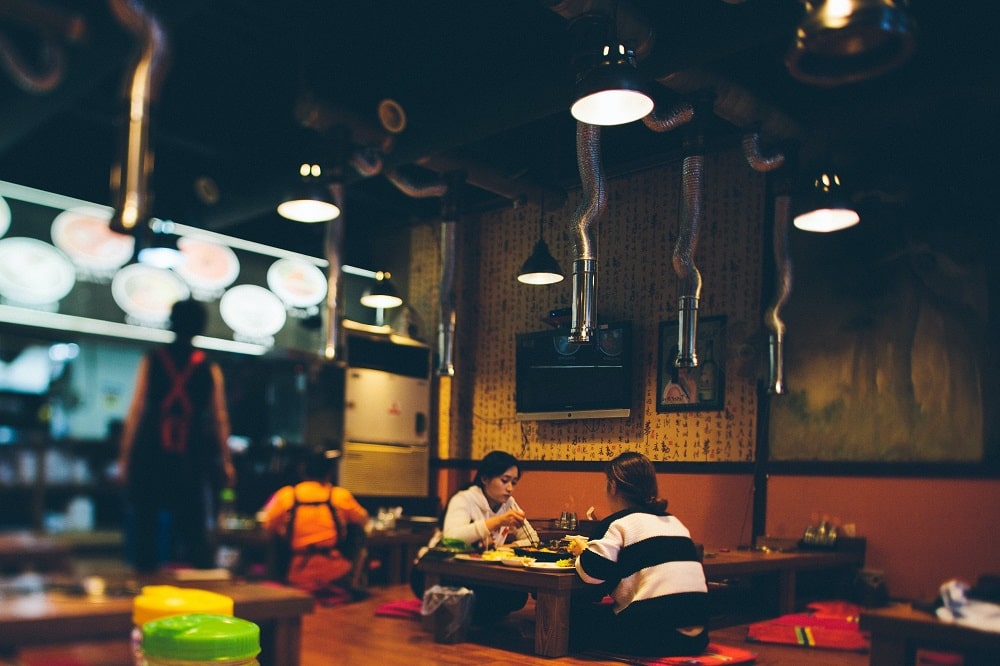
How do you know which goodbye to use? What other etiquette should you follow when wishing someone a farewell in Korean? Here are some things to keep in mind:
- Formality: The level of formality is crucial in Korean interactions, including goodbyes. It’s important to use appropriate honorifics and respectful language when bidding farewell to someone of higher status, older age or in a formal setting.
- Contextual factors: The choice of goodbye phrases can also depend on the context and relationship between individuals. Different phrases may be used when parting with friends, family members, colleagues or strangers. Informal phrases like “안녕” (Annyeong) or “잘 가” (Jal ga) are suitable for casual or close relationships, while more formal expressions are used in professional or formal settings.
- Cultural considerations: In Korean culture, it’s customary to show politeness and consideration for others when saying goodbye. This includes expressing well wishes, such as “잘 가세요” (Jal gaseyo) meaning “Go well” or “안녕히 계세요” (Annyeonghi gyeseyo) meaning “Stay well.”
Additionally, Koreans may often express concerns for the other person’s health, safety or overall well-being during the farewell.
- Non-verbal gestures: Non-verbal gestures such as bowing or shaking hands may accompany goodbyes in more formal or professional settings. Whether you’re saying goodbye or hello in Korean, your body language says a lot about what you’re really saying!
You can pick up on many of these aspects of the Korean language by consuming Korean media. From K-Pop to K-Dramas and everything in between, the more authentic Korean you hear, the more nuances you’ll be able to pick up.
If the idea of learning with authentic Korean media is intimidating, the FluentU program can make it much more approachable.
FluentU takes authentic videos—like music videos, movie trailers, news and inspiring talks—and turns them into personalized language learning lessons.
You can try FluentU for free for 2 weeks. Check out the website or download the iOS app or Android app.
P.S. Click here to take advantage of our current sale! (Expires at the end of this month.)
Say hello to saying goodbye in Korean like a native speaker!
Download: This blog post is available as a convenient and portable PDF that you can take anywhere. Click here to get a copy. (Download)
And One More Thing...
If you enjoyed this post, you're already halfway to having the time of your life learning Korean with FluentU!
FluentU makes it possible to learn with K-pop videos, funny commercials, entertaining web series and more. Just a quick look will give you an idea of the variety of FluentU videos on offer:
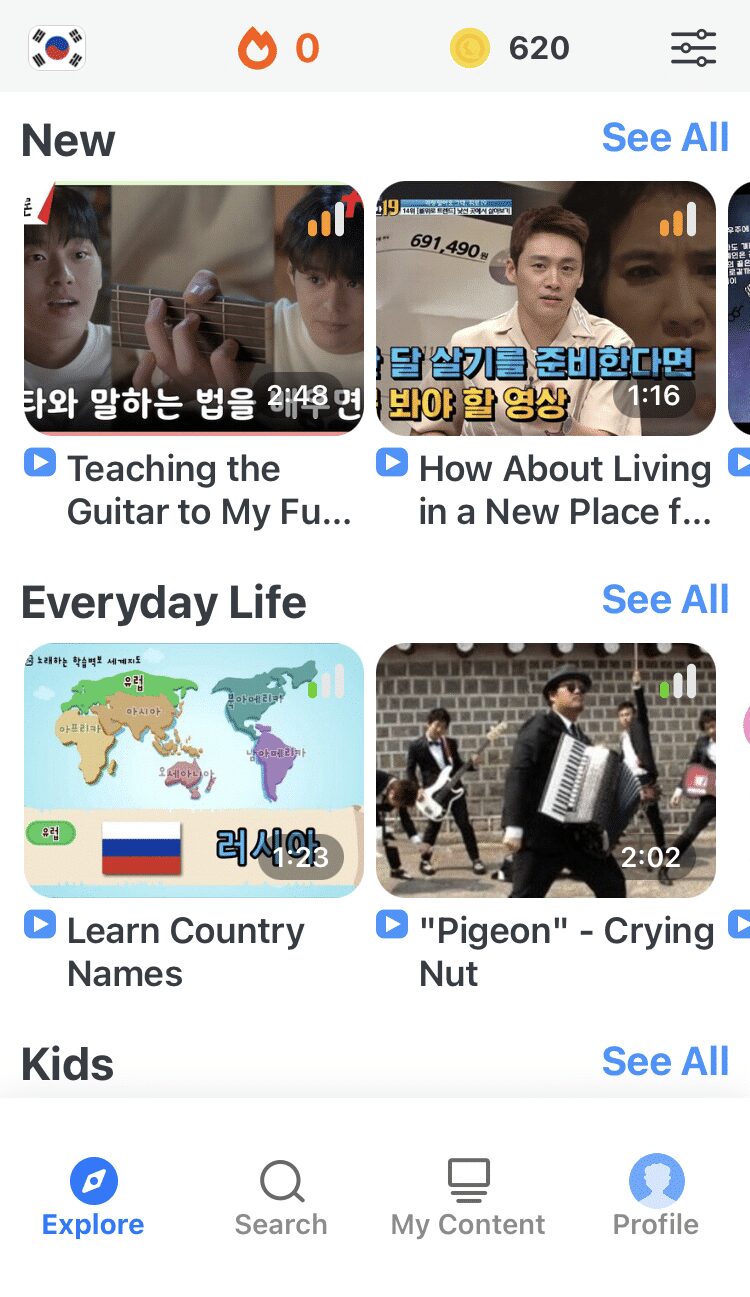
FluentU really takes the grunt work out of learning languages, leaving you with nothing but engaging, effective and efficient learning. It's already hand-picked the best videos for you (which are organized by level and topic), so all you have to do is simply choose any video that strikes your fancy to get started.
Each word in the interactive captions comes with a definition, audio, image, example sentences and more.
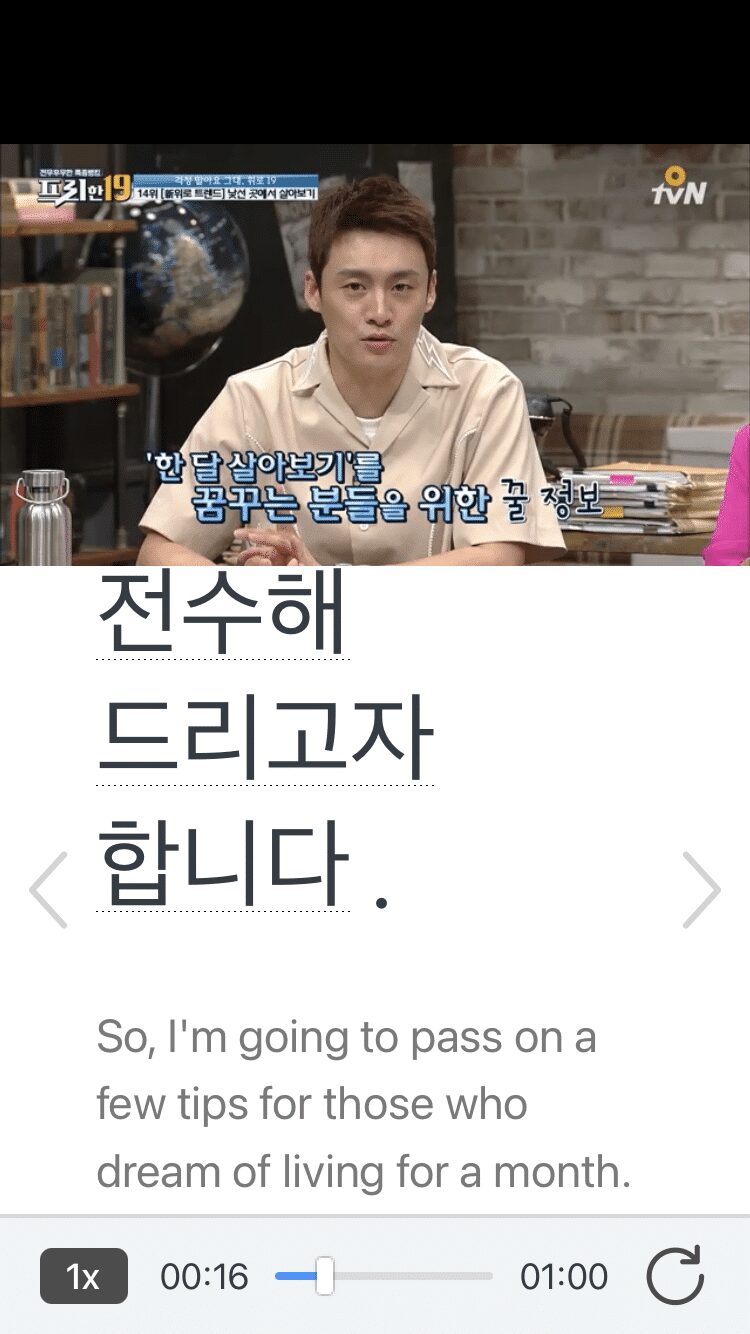
Access a complete interactive transcript of every video under the Dialogue tab, and easily review words and phrases from the video under Vocab.
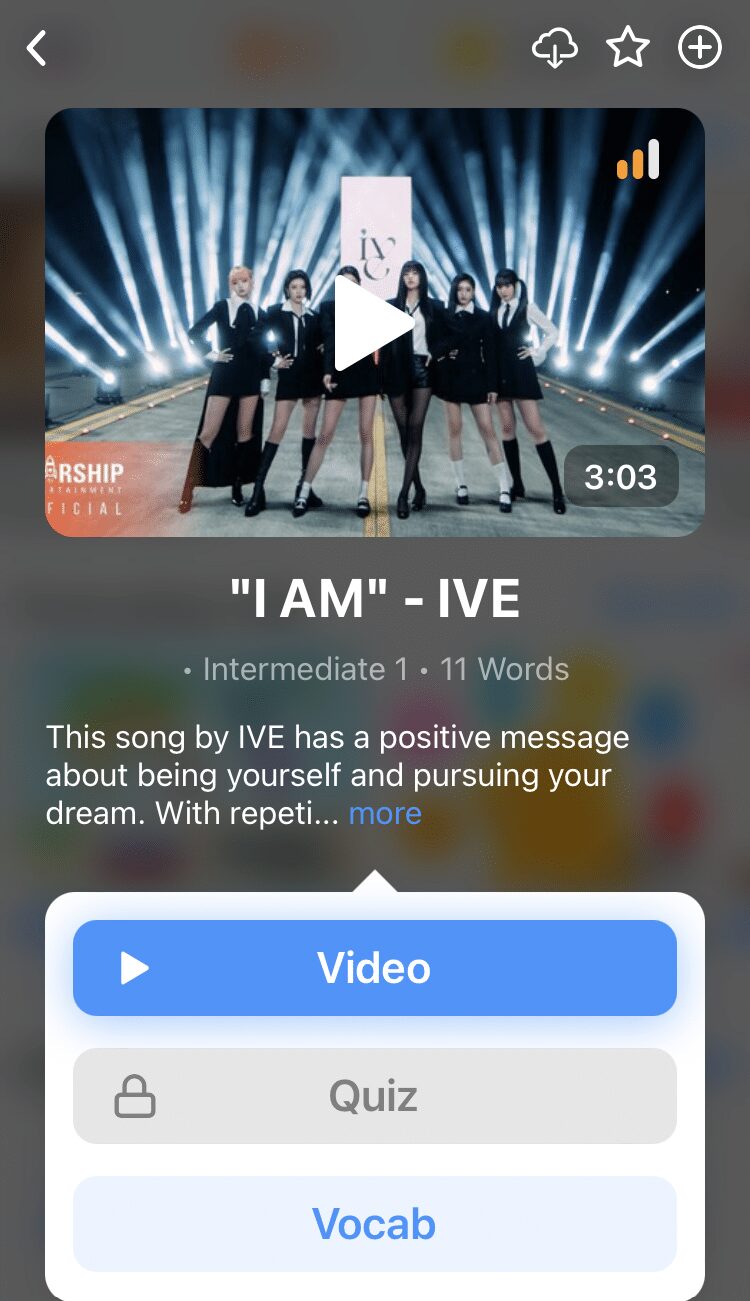
You can use FluentU’s unique Quiz Mode to learn the vocabulary and phrases from the video through fun questions.
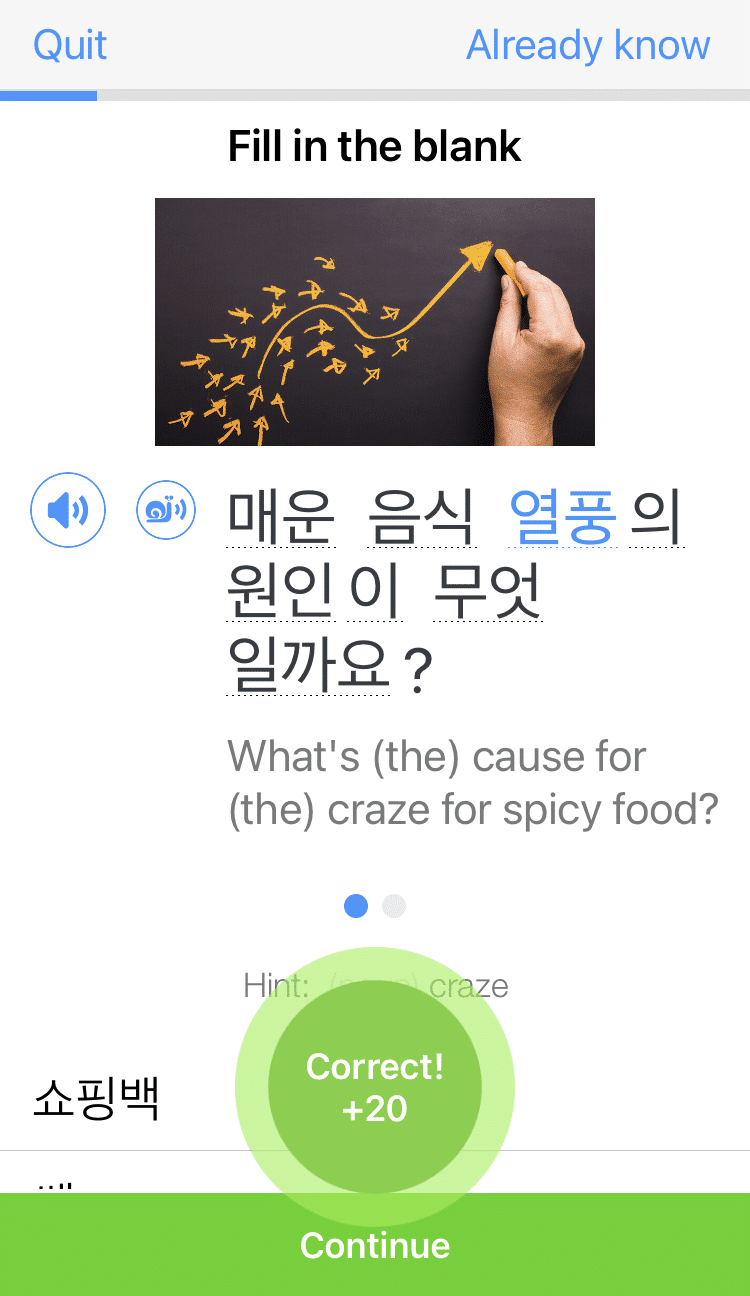
FluentU keeps track of what you're learning, and tells you exactly when it's time for review, giving you a 100% personalized experience.
Review sessions use video context to help embed the words in your memory.
Start using the FluentU website on your computer or tablet or, better yet, download the FluentU app from the iTunes or Google Play store. Click here to take advantage of our current sale! (Expires at the end of this month.)








